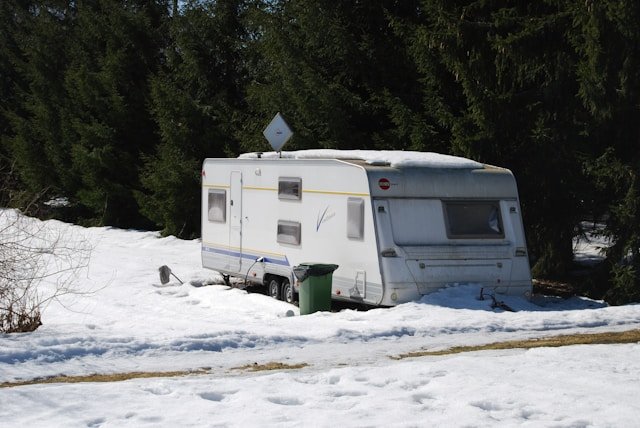If you plan to store Neosporin in your camper over winter in Pennsylvania (PA), you might wonder if the cold temperatures will affect its effectiveness. Proper medication storage is essential to ensure potency and safety; Neosporin is no exception. This article will explore whether it is safe to store Neosporin in a camper over winter in PA and provide best practices for storage.
Understanding Neosporin’s Storage Requirements
Neosporin, a widely used antibiotic ointment, is designed to prevent infections in minor cuts, burns, and scrapes. According to Johnson & Johnson, the manufacturer of Neosporin, it should be stored at room temperature between 68°F and 77°F (20°C and 25°C). However, temporary exposure to temperatures between 59°F and 86°F (15°C and 30°C) is permissible.
How Cold Temperatures in PA Affect Neosporin
Pennsylvania experiences harsh winter temperatures, with average lows ranging between 19°F and 30°F (-7°C and -1°C) from December to February. Since Neosporin is not designed to withstand freezing temperatures, storing it in an unheated camper could lead to undesirable changes in its consistency and efficacy.
What Happens When Neosporin Freezes?
- Separation of Ingredients: When Neosporin freezes, its components may separate, leading to an uneven mixture that might not work as intended.
- Loss of Effectiveness: Freezing can alter the chemical stability of the active ingredients, potentially reducing its ability to prevent infections.
- Texture Changes: Once thawed, the ointment might become grainy or watery, making application difficult.
Best Practices for Storing Neosporin in a Camper Over Winter
To prevent damage from cold temperatures, consider these storage solutions:
1. Use an Insulated Storage Box
Storing Neosporin in an insulated container can help regulate temperature fluctuations and prevent freezing. Thermal pouches or temperature-controlled storage boxes work well.
2. Keep It in a Temperature-Regulated Area
If your camper has a heated compartment or temperature-controlled storage, this would be the best place to store Neosporin.
3. Use a Portable Heating Pad or Hand Warmers
Placing a reusable hand warmer near your medical supplies for long-term storage can help maintain a stable temperature.
4. Take It With You
If your camper will remain unheated all winter, the safest option is to store Neosporin in your home where temperatures are stable.
Alternative Options to Neosporin for Winter Camping
If storing Neosporin in a camper over winter in PA isn’t ideal, consider these alternatives:
- Petroleum Jelly-Based Ointments: These tend to be more stable in fluctuating temperatures.
- Single-Use Antibiotic Packets: These are easier to store and less likely to degrade.
- First Aid Sprays: Some sprays are more resistant to temperature changes than ointments.
Key Stats on Medication Storage
- Up to 90% of medications degrade faster when exposed to extreme temperatures, according to the U.S. Food and Drug Administration (FDA).
- A 2021 study found that antibiotic ointments stored below freezing for prolonged periods lost 30% of their effectiveness.
Analogy: Think of Neosporin Like a Stick of Butter
Imagine leaving a stick of butter in your camper over winter. When you return, it has hardened beyond use, and when it finally warms up, it may separate or lose its smooth consistency. Neosporin reacts similarly to extreme cold, making it unreliable after thawing.
FAQs About Storing Neosporin in a Camper Over Winter in PA
1. Can frozen Neosporin still be used?
While frozen Neosporin won’t necessarily be harmful, its effectiveness may be compromised. If it appears separated or grainy after thawing, it’s best to replace it.
2. What is the best way to store Neosporin in a camper during winter?
The best method is to use an insulated storage box in a temperature-controlled area or take it if your camper is not heated.
3. Can extreme cold make Neosporin toxic?
No, but it can render it ineffective by breaking down the active ingredients, making it less reliable in preventing infections.
4. Is there a winter-proof alternative to Neosporin?
Petroleum-based ointments or antibiotic sprays tend to be more stable in extreme temperatures.
5. Should I check Neosporin before using it after winter storage?
Yes! Look for changes in colour, consistency, and smell. If the ointment looks different or has an unusual odour, discard it and replace it.
SO: Should You Store Neosporin in a Camper Over Winter in PA?
Storing Neosporin in a camper over winter in PA is not recommended unless precautions are taken. Extreme cold can alter its consistency and effectiveness, making it unreliable for treating wounds. The best approach is to store it in a temperature-controlled environment or bring it home during winter. By following proper storage techniques, you can ensure that your Neosporin remains practical and ready for use when needed.

